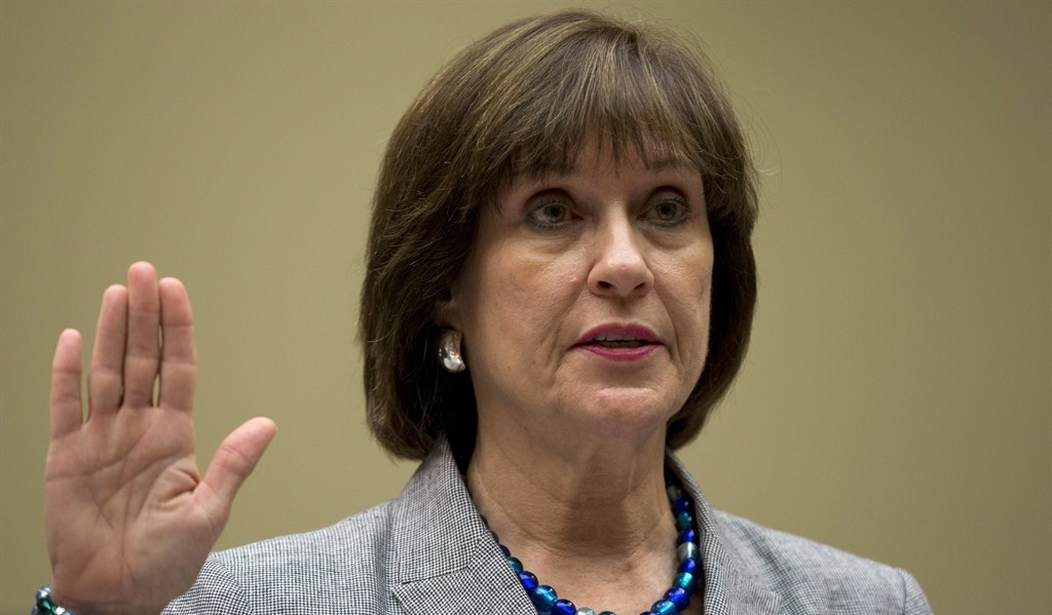IRS apologists are furiously trying to change the subject from the outrageous targeting of political opponents by the IRS to a policy debate over forced disclosure of contributions to groups that engage in political speech. The story is that a deluge of applications forced the IRS to cut corners and the targeting scandal was an accidental result of mismanaging that flood. From there the apologists pivot to demanding a new crackdown on political speech, forced disclosure of donors, or both. But the story is a fairy tale and the "solutions" are unconstitutional.
The Inspector General's report actually shows applications were down when the targeting began. It shows that 1,735 groups applied for 501(c)(4) status in fiscal 2010, down from 1,751 the prior year. The fiscal year was in its fifth month, February 2010, when targeting began; we don't know what the standard was in February because it is redacted in the report. We do know the terms "tea party" and "patriot" were used starting in April 2010, more than halfway through the fiscal year. There is simply no way the IRS could have been flooded with applications that far into a year in which overall applications were down.
Still, the policy debate is an important one: Was the Supreme Court wrong when it found that the anonymity of group member s engaging in controversial speech is protected by the Constitution? Considering the revelation in the Inspector General's report that the IRS looked for "statements in the case file criticize how the country is being run" to subject groups to additional scrutiny, the privacy question is more vital than ever.
"Inviolability of privacy in group association may in many circumstances be indispensable to preservation of freedom of association, particularly where a group espouses dissident beliefs," the Supreme Court ruled.
Many liberals disagree. They believe privacy protections are simply an effort to avoid public scrutiny and responsibility, and the consequences of engaging in political speech should include suffering the potential reputational and business damage that could come from adverse public reaction.
Recommended
The template here is the organized campaign against the corporate members of the American Legislative Exchange Council (ALEC). ALEC is rare among public policy nonprofits - on the left or right -in that it generally discloses its donors, who openly participate in a transparent process of developing model free-market legislation for state legislators.
For being so forthcoming, liberals launched a brutal attack on ALEC, led by Common Cause and the racial-grievance group Color of Change, which was founded by self-described avowed communist and disgraced former Obama green jobs czar Anthony K. "Van" Jones. Through boycotts, negative advertising, and other tools of community organizing, they have bullied dozens of companies into pulling their support for ALEC.
Do other organizations have a right to shield their supporters from that type of retribution? The Supreme Court says yes: "It is not sufficient to answer... that whatever repressive effect compulsory disclosure of names of petitioner's members may have... follows not from state action but from private community pressures. The crucial factor is the interplay of governmental and private action, for it is only after the initial exertion of state power represented by the production order that private action takes hold."
Does it surprise anyone that in the current environment conservative groups, in particular, would cherish the privacy of their members and bridle at intrusive information requests from the IRS? They've seen what happened to ALEC. They've seen what happened to supporters of National Organization for Marriage, whose membership list was illegally leaked by the IRS to their principal political opponents. They know professional protesters stands ready to attack and intimidate their supporters.
What might surprise some liberals is that the quotes I've included from the Supreme Court came not from the Roberts Court in Citizens United, but from the Warren Court in NAACP v. Alabama. In that landmark 1958 decision, the Court unanimously found that free association often depends on privacy protection from a government that could use forced disclosure for retribution by itself or by "private community pressures." It's still true.

























Join the conversation as a VIP Member